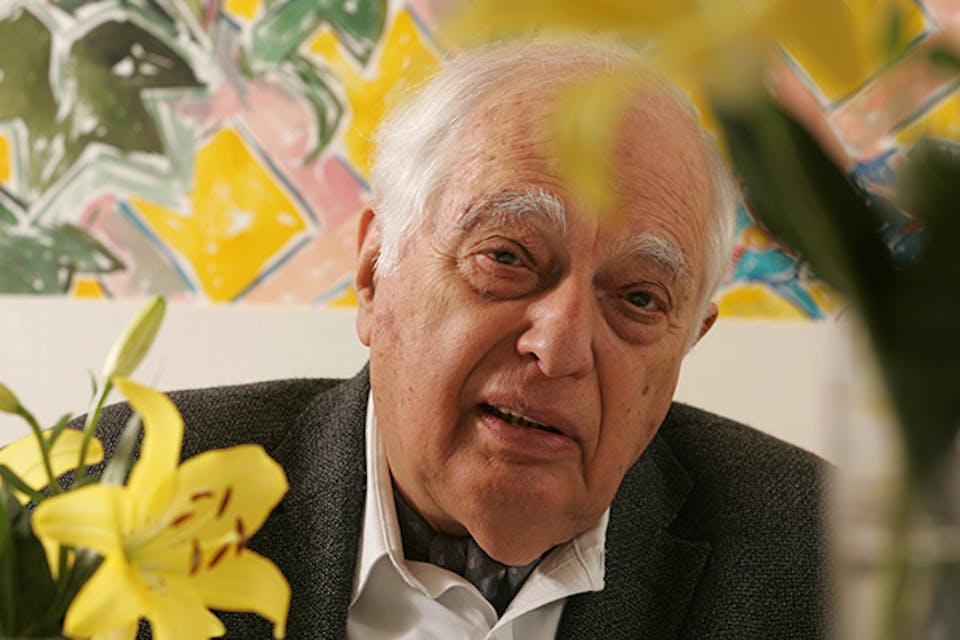
June 6, 2018
With the Death of Bernard Lewis, the Age of Academic Giants Has Come to an End
Professional study of Middle East history now belongs to incompetents and political agitators.
As a graduate student at Princeton University in the mid-1990s, I grew to know and love Bernard Lewis, the preeminent historian of the Middle East who passed away on May 19, less than two weeks before his 102nd birthday. At the time, I was in my early thirties and he was a year or two short of eighty, though you would not have known it from the pace of his work—a pace with which I soon became familiar as his research assistant.
By then I had met any number of extremely accomplished people, but never anyone quite like him. Lewis was a genius, by which I mean not just that he was extremely intelligent but that he possessed dazzling and unique intellectual gifts. He knew somewhere between ten and fifteen languages. The ones that mattered most to him professionally—Arabic, Hebrew, Farsi, modern Turkish, Ottoman Turkish, French, and German—he knew extremely well. He also had a photographic memory.
Near-perfect recall is an impressive instrument, though it entails its own peculiar complications. One day, Lewis handed me a manuscript of his new book, The Middle East: A Brief History of the Last 2,000 Years. He asked me to proofread it and to be on the lookout, especially, for repetitions—not just within the text but also between it and his other publications. Edward Said, the author of Orientalism and Lewis’s nemesis and bête noire, had accused him of “recycling old notes.” Lewis had no wish to turn Said into a truth-teller.